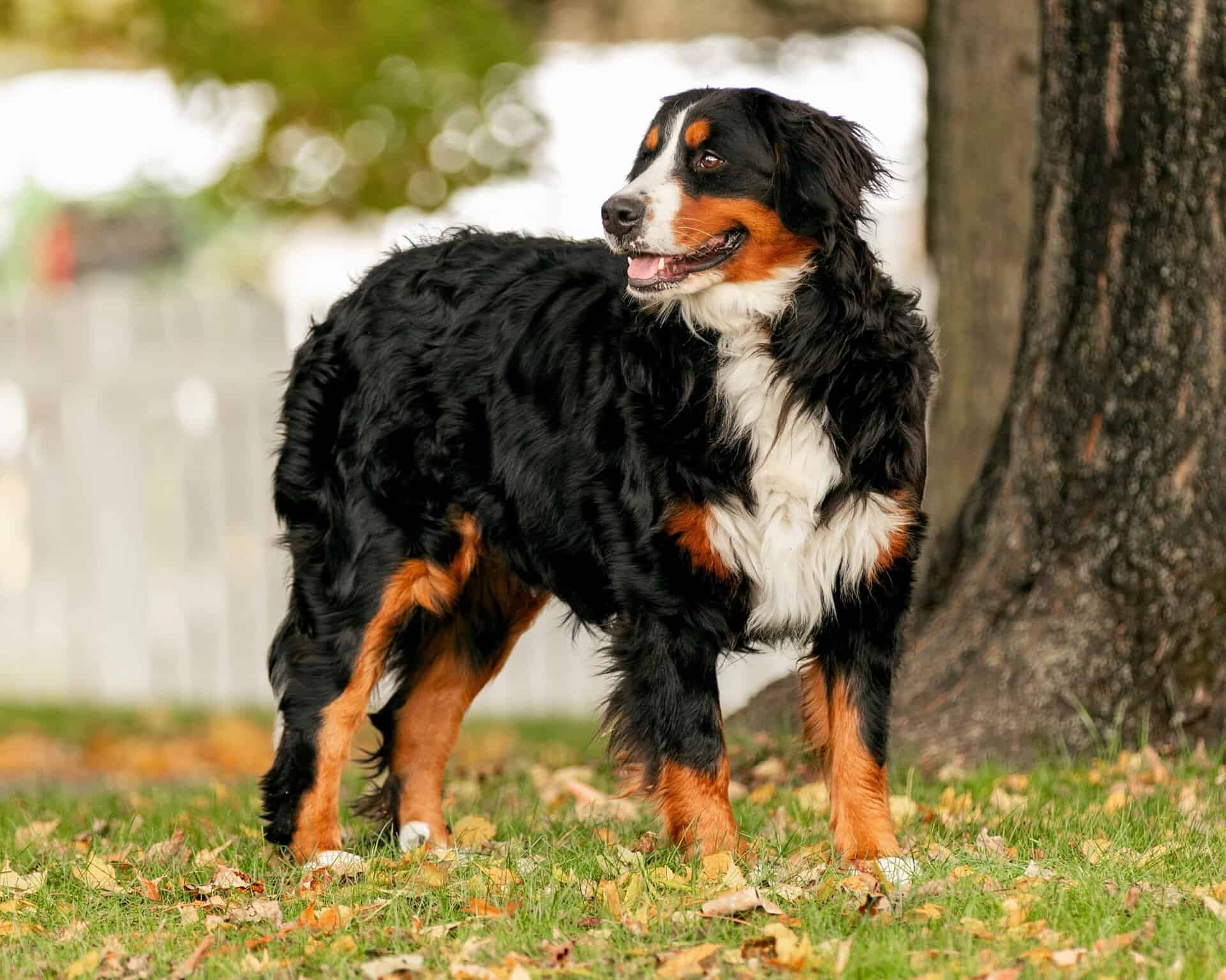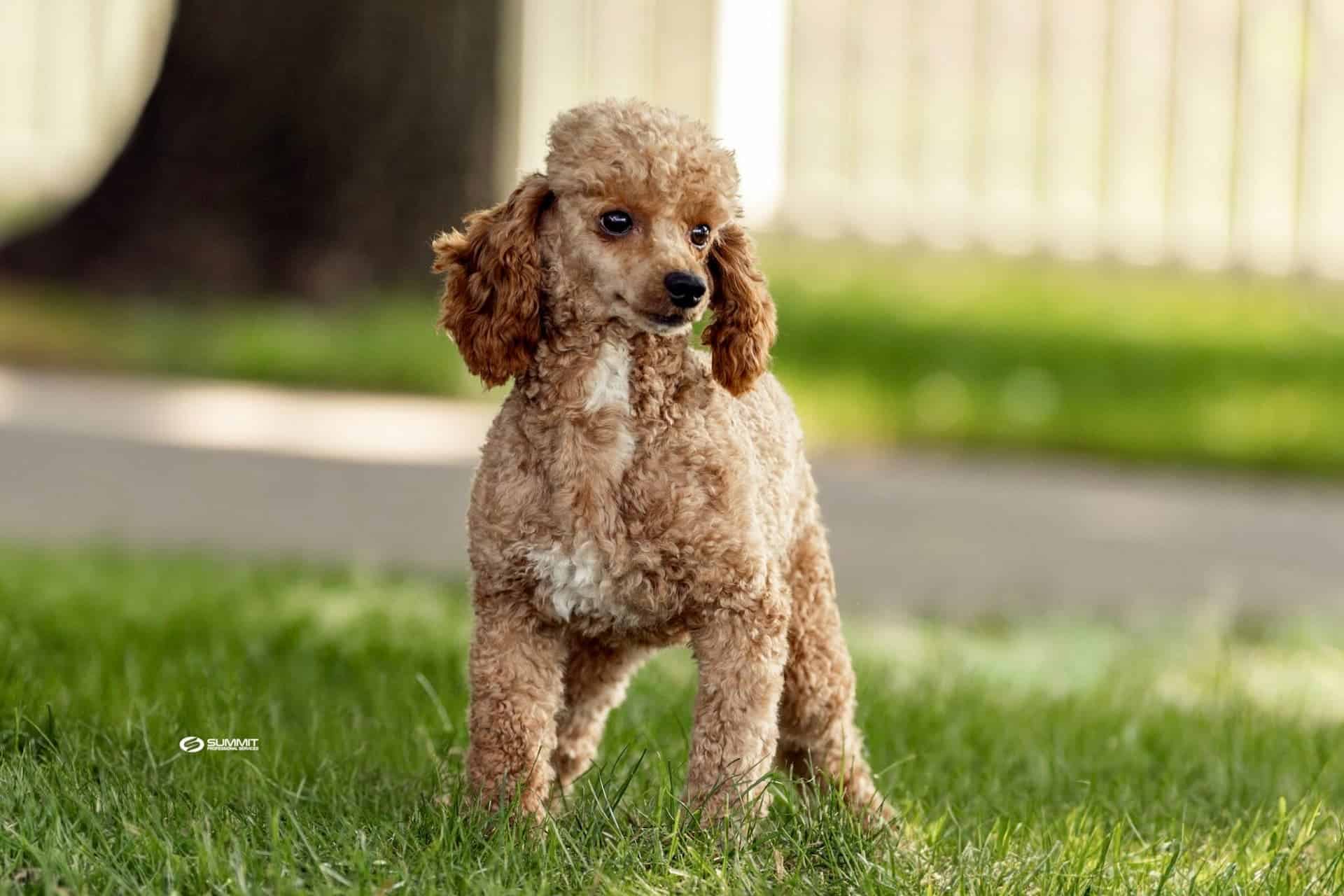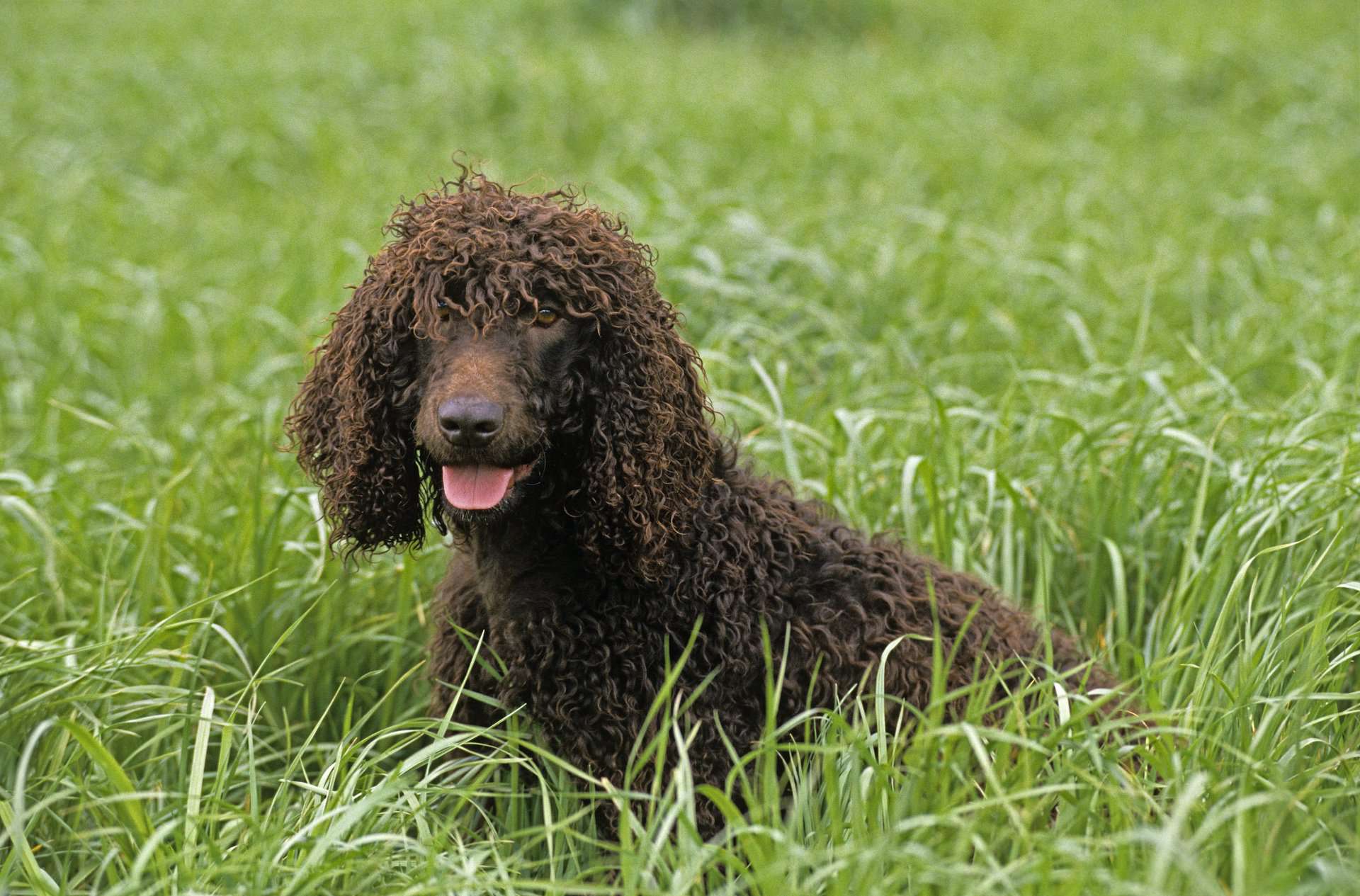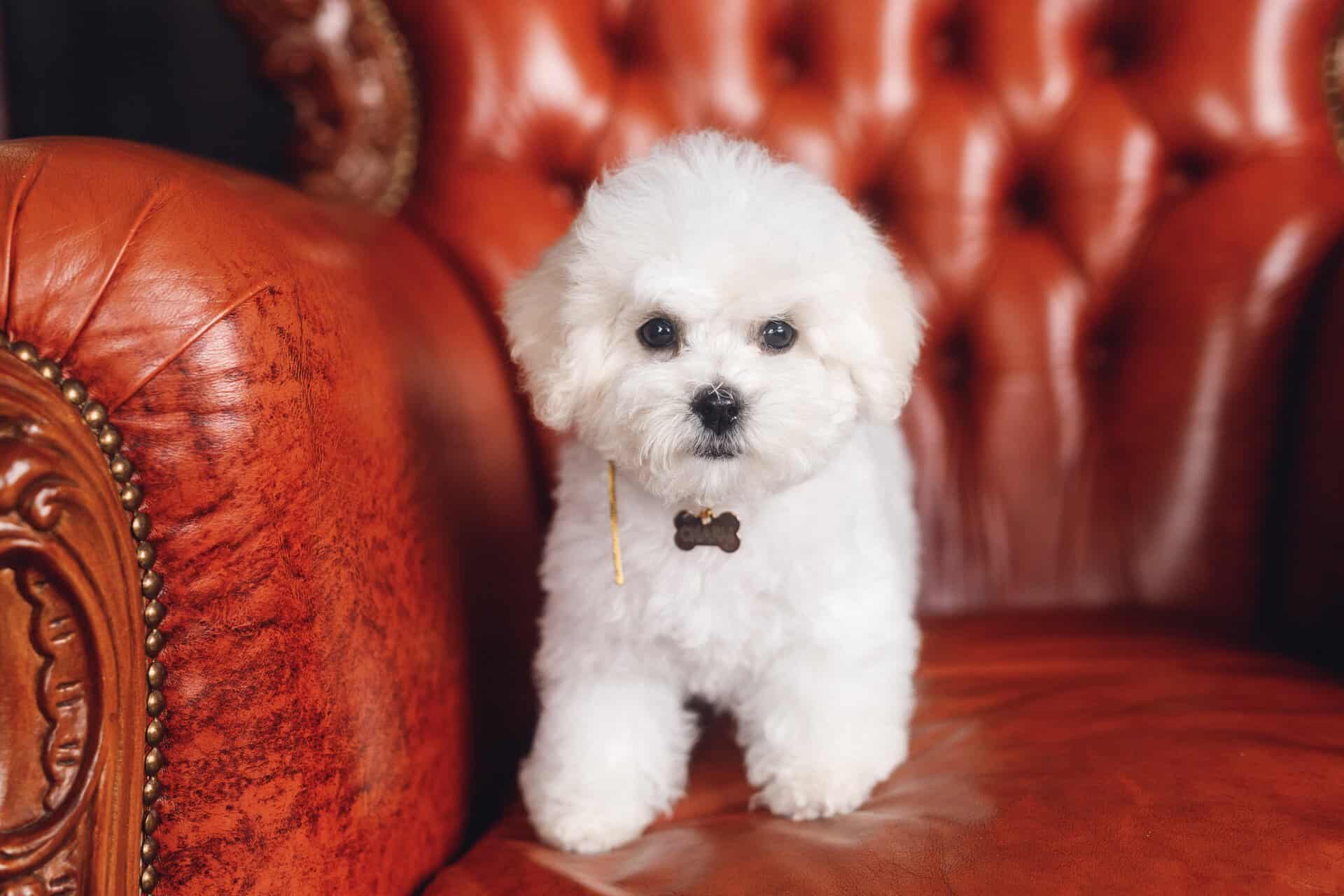Ever since the introduction of the Labradoodle in the late 90s and early 2000s, Doodles have been among the most popular dog breeds in the country.
There are many different types of individual breeds within the doodle domain, including Goldendoodles, Aussiedoodles, and more. However, Bernedoodles have recently emerged as one of the most popular overall Doodle breeds around.
What is a Bernedoodle?


Bernedoodles are a cross between a Poodle and a Bernese Mountain Dog. Part of the reason they’ve become so popular is because they’re considered hypoallergenic and non-shedding.
As with other Doodle breeds, Bernedoodles come in several different sizes, including mini, medium, and standard, with standard being the largest.
While Bernedoodles are considered hypoallergenic, there are several different generations within the Bernedoodle breed, and some of these generations are more or less hypoallergenic than others.
It’s important to understand these differences if you or someone in your home has dog allergies and want to be sure that your Bernedoodle puppy isn’t going to cause a reaction.
How generation affects the hypoallergenicity

While all breeds of Bernedoodle are at least partially hypoallergenic or allergy-friendly, exactly how hypoallergenic they are depends on what generation of Bernedoodle they are. This is because what generation they are determines how much Poodle DNA they have versus how much Bernese Mountain Dog DNA they have.
For example, an F1 Bernedoodle is half Poodle and half Bernese, while an F1B Bernedoodle is roughly 75% Poodle and 25% Bernese. Therefore, an F1B Bernedoodle has more poodle DNA and is more hypoallergenic than an F1 Bernedoodle.
Likewise, multi-gen Bernedoodles have a higher percentage of Poodle than Bernese, which means they’re also more hypoallergenic than an F1. In our experience the multi-gens are as hypoallergenic as the F1B.
There is a general belief that more curly coats are more hypoallergenic but in our experience that just isn’t true. In a multi-gen Bernedoodle litter, puppies with wavy coats are as hypoallergenic as a sibling with curly coats.
Based on this principle, F1 Bernedoodles are considered allergy-friendly, whereas any other type of Bernedoodle with a higher percentage of poodle is considered hypoallergenic.
How do Bernedoodles compare to other breeds in hypoallergenicity?



There’s really no difference between Bernedoodles and other types of Doodles when it comes to how hypoallergenic they are.
It all depends on what generation they are and how much Poodle DNA they have in them. As such, an F1 Bernedoodle is just as hypoallergenic as an F1 Goldendoodle, and an F1B Goldendoodle is just as hypoallergenic as an F1B Bernedoodle.
There are, however, other dog breeds that are more hypoallergenic than Bernedoodles and other types of Doodles. You can find the complete list here, but it includes pure-blooded breeds, such as Portuguese Water Dogs, Bichon Frise, Irish Water Spaniels, and more.
What exactly is “hypoallergenic?”
According to the Merriam-Webster dictionary, hypoallergenic means “little likelihood of causing an allergic response.” So, when people use hypoallergenic in reference to Bernedoodles and other dogs, it means that the dog is less likely to cause someone with a dog allergy to have an allergic reaction.
However, no dog is 100% hypoallergenic, which means there’s never a 0% chance that someone with dog allergies is safe around even the most “hypoallergenic” dog.

Are there different levels of hypoallergenic?
As with other types of allergies, there are different hypoallergenic levels. As I mentioned above, Poodles are considered extremely hypoallergenic, whereas Bernese Mountain Dogs are 0% hypoallergenic. Therefore, the more Poodle there is in a Bernedoodle, the more hypoallergenic they will be.
However, there are also different levels of dog allergies among people. Some people are extremely allergic and will have a reaction to F1 Bernedoodles, because they only have half poodle DNA. Others who have very minor allergies can be around any type of Bernedoodle without fear of having a reaction.
How are hypoallergenic breeds chemically or physically different from non-hypoallergenic breeds?
There are several key distinguishing factors that make hypoallergenic breeds different from non-hypoallergenic breeds:
- Hypoallergenic breeds produce less dander than other dogs, reducing the risk of an allergic reaction.
- The dander on hypoallergenic breeds tends to get stuck in their fur rather than getting released into the air.
- Hypoallergenic dogs typically shed less than non-hypoallergenic dogs.
- Non-hypoallergenic dogs produce a specific protein in their saliva and skin that can trigger an allergic reaction. Hypoallergenic dogs produce fewer of these proteins.
Where hypoallergenic breeds are not different than non-hypoallergenic breeds is when it comes to saliva and urine. All dogs produce proteins in their saliva and urine that people with dog allergies will react to. Therefore, it’s important to know what about dogs triggers your allergic reactions because all dogs can cause allergies through their saliva and urine.
Does hypoallergenic have anything to do with shedding and slobbering?
While hypoallergenic doesn’t mean that a dog will never shed or slobber, it means far less shedding and slobbering in comparison to non-hypoallergenic breeds. The less shedding and slobbering a dog does, the less likely they are to cause allergies. This is the main reason why hypoallergenic dogs trigger fewer allergic reactions.
Why do some people have dog allergies?

I’m going to get scientific for a moment, so bear with me!
People have dog allergies for the same reasons they have other types of allergies – because the body’s immune system overreacts to something (an allergen) from the dog that the person touches or inhales.
The immune system mistakenly believes that the allergen is dangerous, and triggers a response to attack the allergen. This is what causes the hives, itchiness, redness, and other side effects of an allergic reaction.
What about the root cause of dog allergies?
As with other types of allergies, dog allergies can be caused by many different things, including genetics. In the case of dog allergies, we don’t know why some people have allergies and others don’t. We simply know that the most common triggers of dog allergies are dander, urine, and saliva.
Is allergy-friendly the same thing as hypoallergenic?
Although the two terms are sometimes mistakenly used interchangeably, allergy-friendly and hypoallergenic aren’t the same thing. Allergy-friendly refers to dogs that are unlikely to cause an allergic reaction in someone who is only slightly allergic to dogs. If you have a moderate to severe allergy, however, you will likely react to “allergy-friendly” dogs.
Hypoallergenic, on the other hand, refers to dogs that are unlikely to cause a reaction to people with moderate to severe allergies. That’s why, on a hypoallergenic scale of 1 to 10, F1 Bernedoodles are considered a 6 or 7, while F1B and multi-gen Bernedoodles are a 9 or 10 out of 10.
Can hypoallergenic dogs have allergies themselves?
Just because a dog is considered hypoallergenic doesn’t make them immune to allergies themselves. In fact, certain types of allergies, specifically food allergies, are extremely popular among Bernedoodles, Goldendoodles, and other Doodles.
It’s important to be aware of how common food allergies are among Bernedoodles so that you can be on the lookout for them. Food allergies can lead to irritable bowel syndrome, irritable bowel disease, Crohn’s disease, and other digestive issues.
If left untreated, these issues can become even more serious and cause serious stomach problems that can prove fatal.
What are the benefits of a hypoallergenic breed?

Now that we’ve dissected everything there is to know about hypoallergenic, allergy-friendly, and dog allergies, let’s examine the benefits of choosing a hypoallergenic breed.
- Little to no shedding, depending on what generation of Doodle they are.
- In addition to causing fewer allergic reactions, less shedding also means less cleanup at home.
- Less drooling which means fewer allergy-causing proteins and less mess in the home.
- Hypoallergenic dogs also tend to give off fewer odors than other dogs.
- If you have a dog allergy, you will have fewer symptoms and reactions.
- The dander that all dogs produce is less likely to become airborne and float through the air.
The biggest advantage of hypoallergenic breeds is that they cause fewer allergic reactions and symptoms. This includes hives, sneezing, runny nose, coughing, runny eyes, and more.
Can I get over my dog allergy?
While some people may become less allergic to dogs through repeated exposure, it’s impossible to completely cure yourself of your dog allergy. Your body will always have the built-in immune response that thinks the protein contained in the dander, urine, and saliva of dogs is dangerous, which triggers the reaction.
Are Bernedoodles good for people with allergies?
Once again, it’s important to reiterate that no dog is ever 100% hypoallergenic. However, Berndoodles are specifically bred to make them more allergy-friendly to people with dog allergies. As such, these people are less likely to have an allergic reaction to a Bernedoodle in comparison to other non-hypoallergenic dogs.
Do Bernedoodles shed a lot?
How much a Bernedoodle sheds varies from dog to dog and what generation the Bernedoodle is. In general, however, Bernedoodles don’t shed much, which means less dander around the house.
What do people on Reddit think about hypoallergenic Bernedoodles?
It’s also good to hear firsthand how Bernedoodle owners with dog allergies are faring. For instance, here’s what one person on Reddit had to say:
As someone who’s allergic to dogs (I only get itchy, watery eyes, sniffly ect), I’ve had a poodle and now a Bernedoodle. Sometimes it bothers me but not much.
the_royal_qu33n on Reddit
Final Thoughts
At the end of the day, if you’re allergic to dogs but want to have a four-legged companion in the home, Bernedoodles are a great option. F1s are good for people with mild allergies, while F1Bs and multi-gens are better for people with more severe allergies. Either way, however, you’re getting a great dog. Bernedoodles are known to be friendly, loyal, playful, and gentle.
If you have more questions about Bernedoodles or want to add one to your home, call me at (574) 596-0350. In addition to having some of the best and friendliest Bernedoodles around, I can also answer other questions you have about your Bernedoodle!

